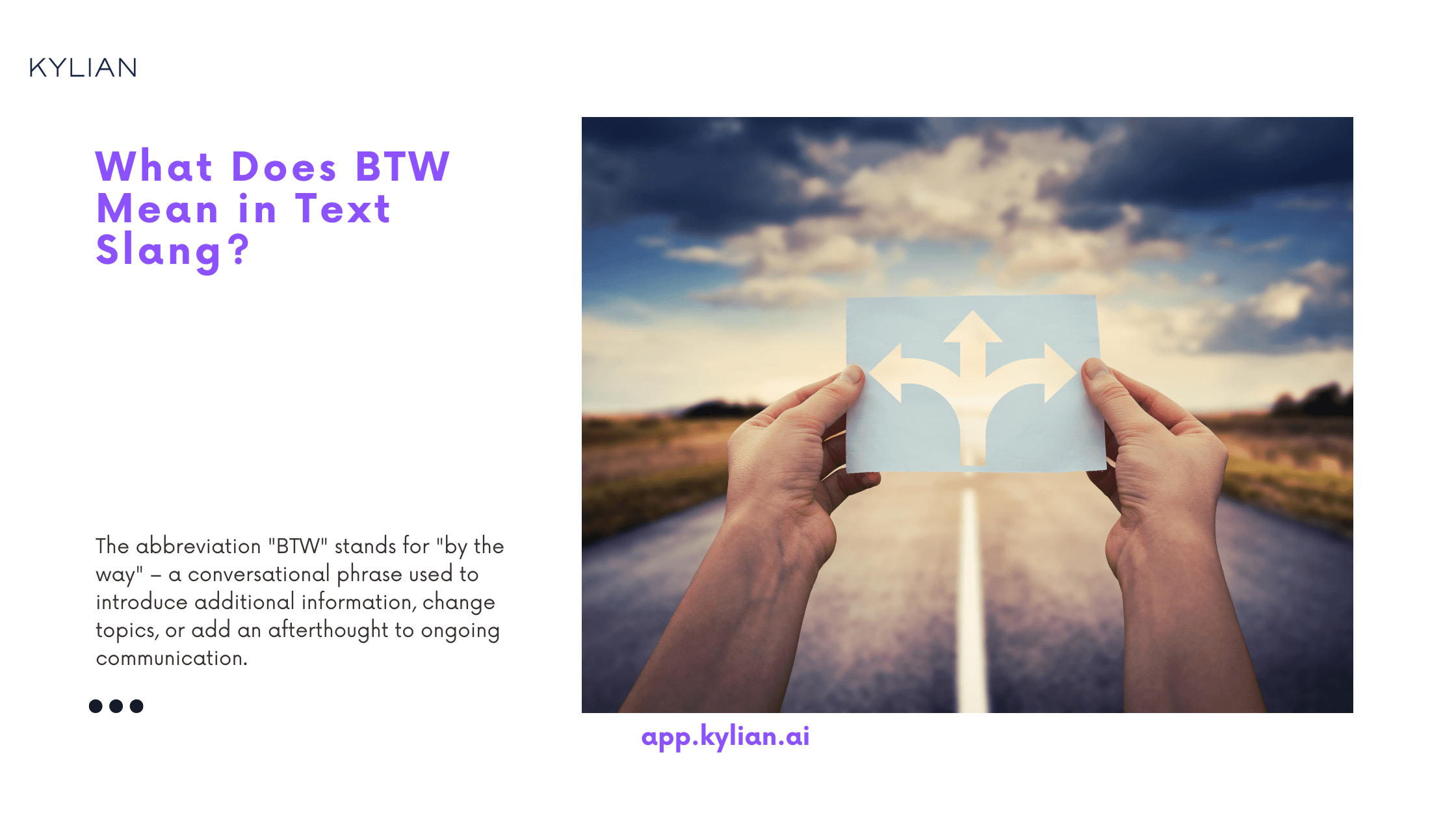

What Does BTW Mean in Text Slang?
So you see native English speakers using "BTW" in texts, emails, and social media but aren't quite sure what it means? The abbreviation "BTW" stands for "by the way" – a conversational phrase used to introduce additional information, change topics, or add an afterthought to ongoing communication. This three-letter acronym has become one of the most widely recognized text abbreviations in digital communication, appearing across platforms from SMS to professional emails. Understanding BTW isn't just about decoding letters; it's about grasping the conversational flow and social cues that make digital communication feel natural and engaging.
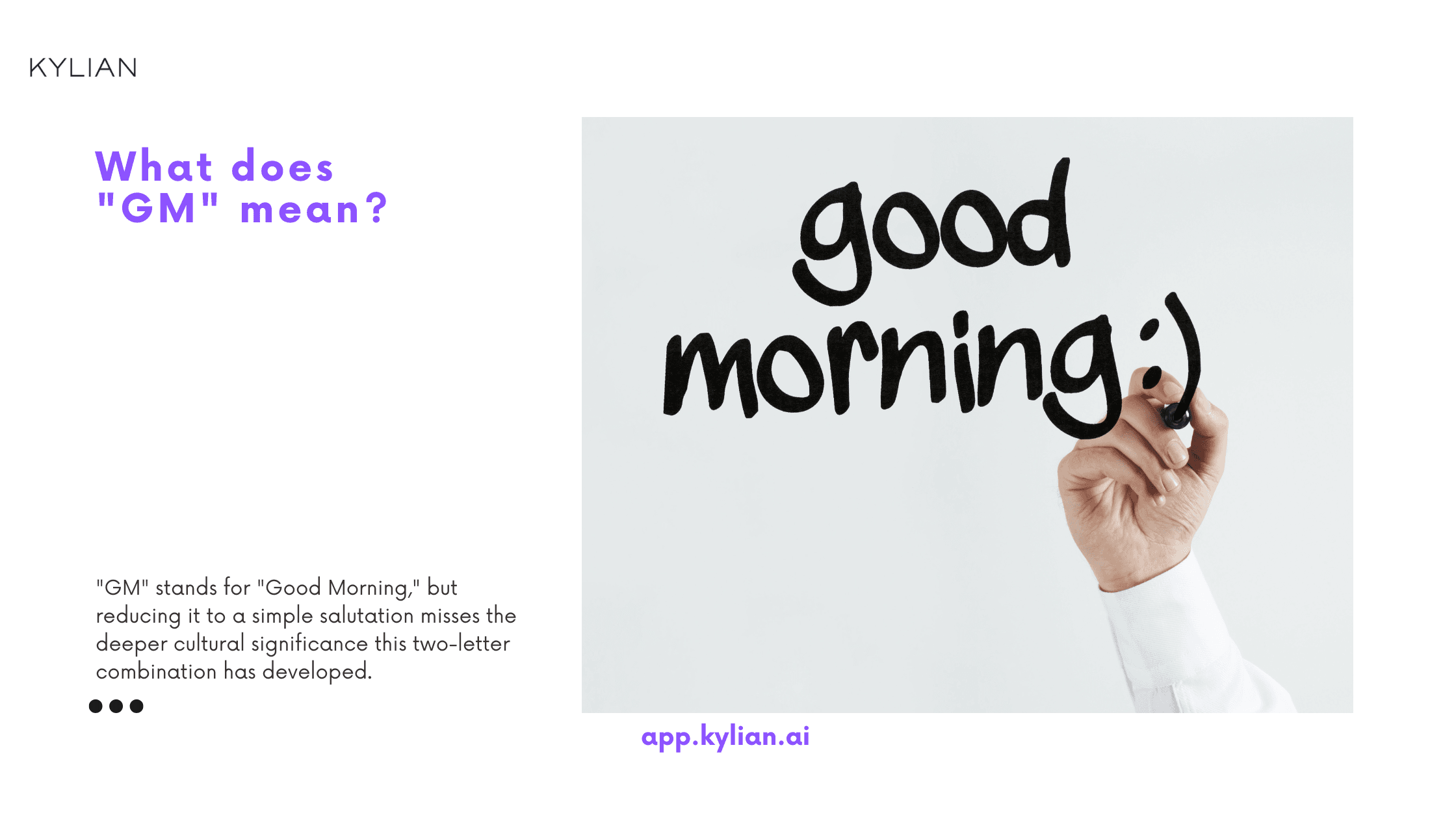

What does "GM" mean?
You've encountered "GM" across social media platforms, text messages, or online communities, but its meaning remains unclear? This abbreviation carries significant weight in digital communication, particularly within cryptocurrency and Web3 communities where it functions as more than casual greeting—it represents cultural identity and community belonging. "GM" stands for "Good Morning," but reducing it to a simple salutation misses the deeper cultural significance this two-letter combination has developed. Unlike traditional morning greetings, GM transcends time zones and conventional pleasantries, functioning as a rallying cry, community identifier, and optimism signal within specific digital ecosystems.


What Does LOML Mean? English Slang Decoded
So you encounter native English speakers using "LOML" in texts, social media posts, or casual conversations but remain uncertain about its meaning? This acronym carries significant emotional weight in modern English communication. LOML stands for "Love of My Life" – a term that expresses the deepest romantic affection someone can feel toward another person. Understanding LOML requires recognizing its position within the hierarchy of romantic expressions. While casual terms like "babe" or "honey" serve everyday interactions, LOML occupies the apex of emotional declarations. This designation typically applies to one person throughout someone's lifetime, making its usage both powerful and selective.


Condescending vs Patronizing in English: Master the Nuance
Understanding the subtle distinction between "condescending" and "patronizing" represents more than vocabulary expansion—it's about recognizing power dynamics in communication. In English, "condescending" describes behavior that shows superiority through a downward attitude, while "patronizing" refers to treating someone as if they lack intelligence or capability, often under the guise of helpfulness. Both terms capture forms of disrespectful communication, yet their applications reveal different motivations and contexts. The precision in using these words matters because misidentifying condescending behavior as merely patronizing—or vice versa—can lead to inadequate responses in professional and personal situations.


Some Creative Ways to Say Cousin in English (Cousin Slang)
Family connections matter more than ever, yet the language we use to describe these relationships keeps evolving. The word "cousin" itself feels increasingly formal for many people, especially when referring to those family members who occupy that unique space between sibling and friend. Whether you're texting your favorite family member or introducing them to friends, having the right slang term can make all the difference. From affectionate nicknames to cultural variations, the ways we refer to cousins reflect both intimacy and creativity in modern English. In this article, we'll explore over 45 different slang terms for cousin, covering everything from casual everyday expressions to regional variations that add flavor to family conversations.


What does HMU mean?
So you encounter native English speakers typing "HMU" in texts, social media posts, or casual conversations, but you're left wondering what this cryptic abbreviation actually means? The confusion is understandable. In English, "HMU" stands for "Hit Me Up," a casual invitation for someone to contact you or get in touch. This seemingly simple phrase carries nuanced meanings that extend far beyond its literal translation, making it a crucial piece of contemporary English communication. The significance of understanding "HMU" transcends mere slang comprehension. This abbreviation represents a fundamental shift in how English speakers initiate and maintain social connections in digital spaces. When someone uses "HMU," they're not just asking for contact—they're creating an open invitation for future interaction while maintaining the casual, low-pressure tone that defines modern communication.


What Does FML Abbreviation Mean?
So you encounter native English speakers texting "FML" but remain uncertain about its meaning? Understanding internet slang matters because digital communication now represents 85% of daily interactions among millennials and Gen Z users. FML stands for "F*** My Life" – an expression of frustration, disappointment, or exasperation used when circumstances feel particularly unfavorable. This abbreviation emerged during the early 2000s internet culture and has become embedded in modern English digital communication. Unlike temporary slang that fades within months, FML has maintained consistent usage across platforms for over two decades, making it essential knowledge for anyone navigating contemporary English conversations.


Shank Slang: Different Ways to Use This Urban Term
Language evolves faster than most people realize, and slang terms like "shank" demonstrate this evolution in real-time. What started as prison terminology has permeated mainstream culture, appearing in everything from hip-hop lyrics to casual conversations among teenagers. Understanding "shank" isn't just about knowing another slang word—it's about grasping how context, environment, and social dynamics shape meaning. Whether you're navigating urban environments, consuming contemporary media, or simply trying to decode generational language gaps, this knowledge matters now more than ever.
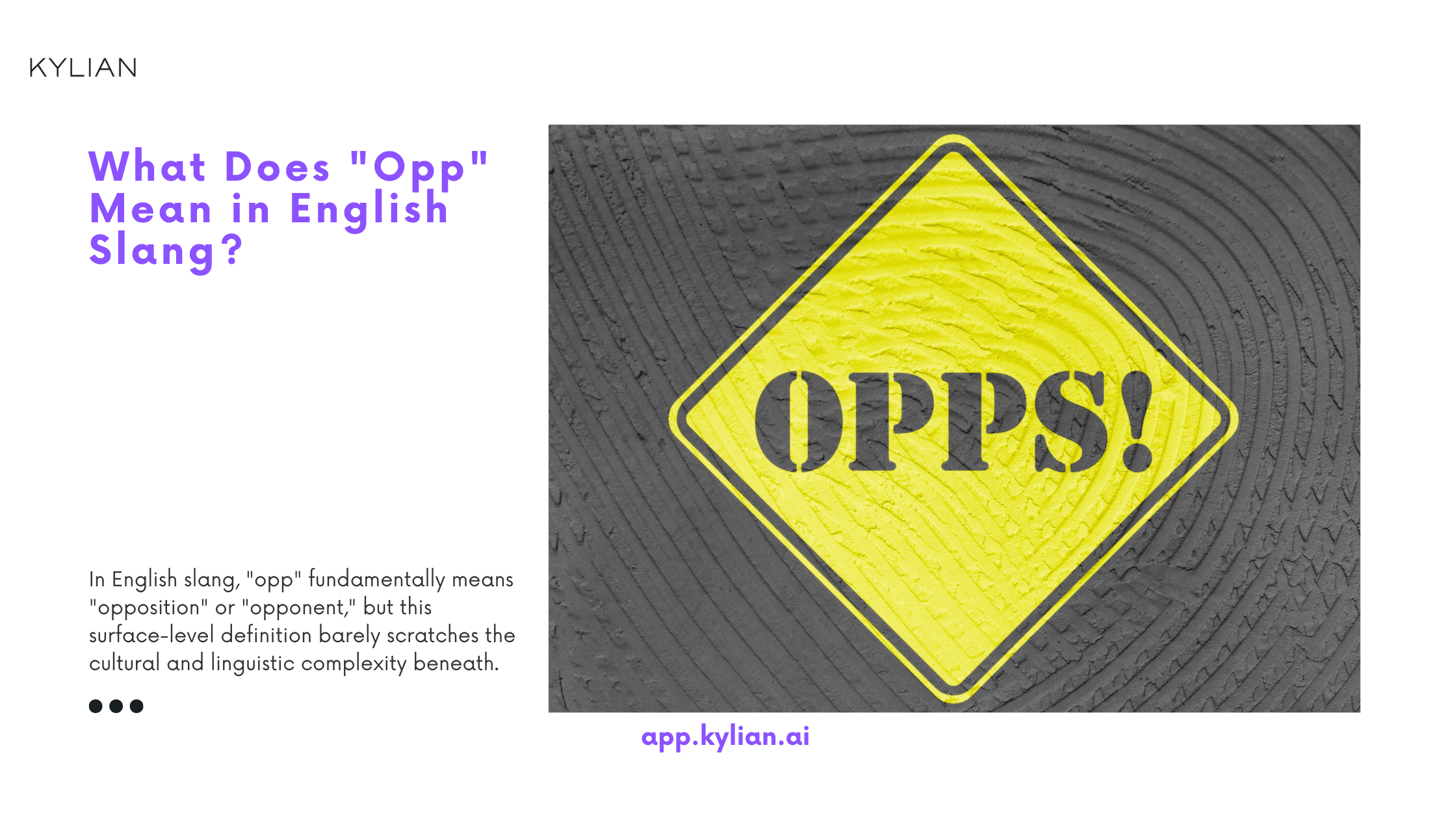

What Does "Opp" Mean in English Slang?
So you hear English native speakers say "opp" but struggle to understand what it means? This isn't surprising. "Opp" represents one of the most contextually loaded slang terms in contemporary English, carrying weight that extends far beyond its simple three-letter construction. In English slang, "opp" fundamentally means "opposition" or "opponent," but this surface-level definition barely scratches the cultural and linguistic complexity beneath. The term's power lies not in its brevity, but in its ability to instantly categorize relationships, signal group membership, and communicate threat levels within specific social contexts. Understanding "opp" requires grasping its evolution from hip-hop culture into mainstream usage, where it now functions as both identifier and warning system.
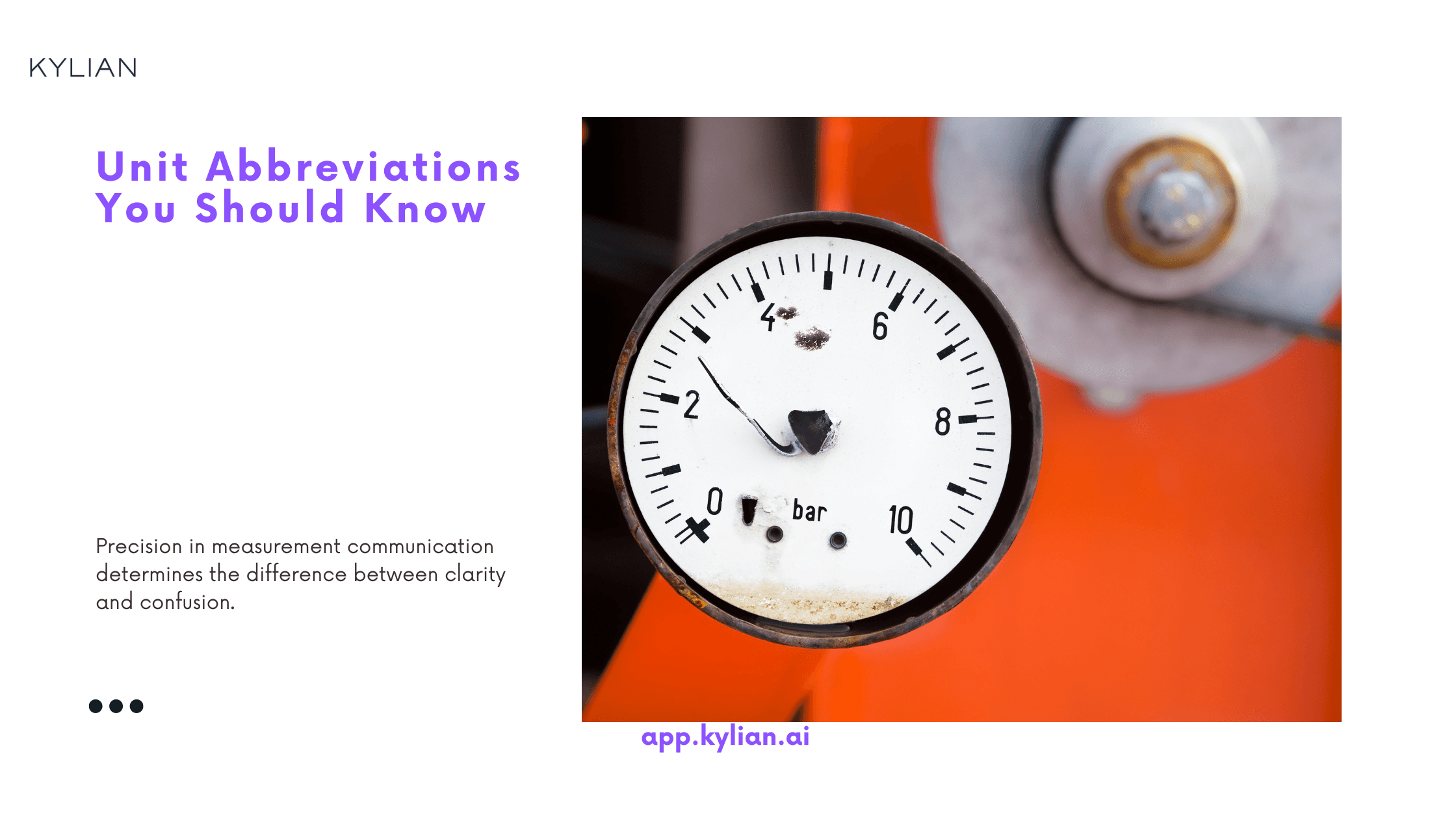

Unit Abbreviations You Should Know
Precision in measurement communication determines the difference between clarity and confusion. When engineers miscommunicate unit specifications, projects fail. When students misinterpret scientific notation, experiments produce incorrect results. The systematic use of standardized unit abbreviations eliminates these costly errors. Understanding unit abbreviations matters because measurement accuracy drives decision-making across industries. From pharmaceutical dosing to construction specifications, abbreviated units provide the universal language that enables global collaboration and prevents dangerous misinterpretations.
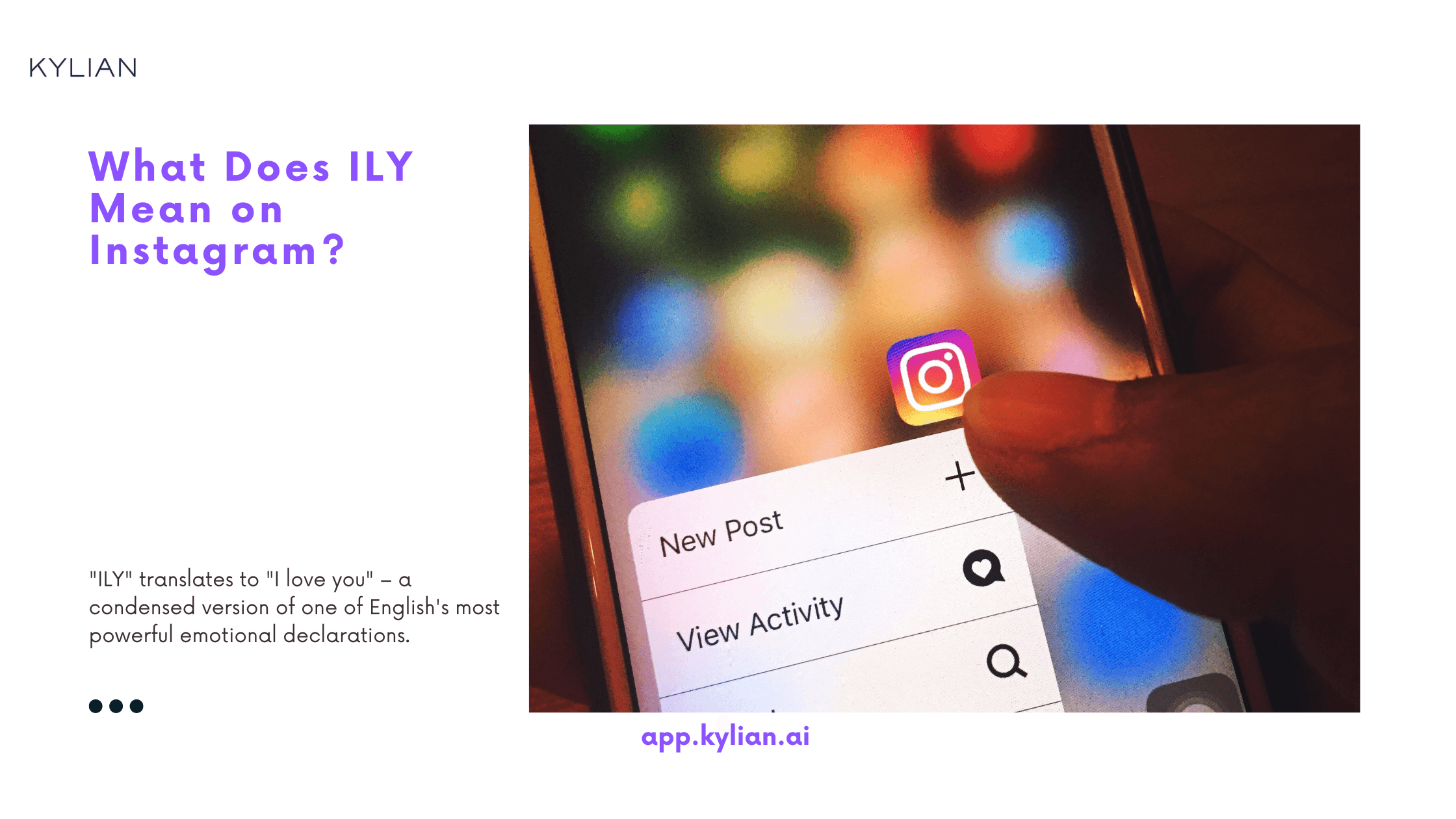

What Does ILY Mean on Instagram?
Social media abbreviations have fundamentally altered how we express emotions online, and "ily" stands as one of the most prevalent yet misunderstood acronyms across platforms. You encounter "ily" in Instagram comments, direct messages, and Stories daily, but its contextual usage determines whether you're witnessing genuine affection or casual social interaction. "ILY" translates to "I love you" – a condensed version of one of English's most powerful emotional declarations. However, this three-letter combination carries significantly different weight depending on who uses it, when they deploy it, and the relationship dynamics at play.
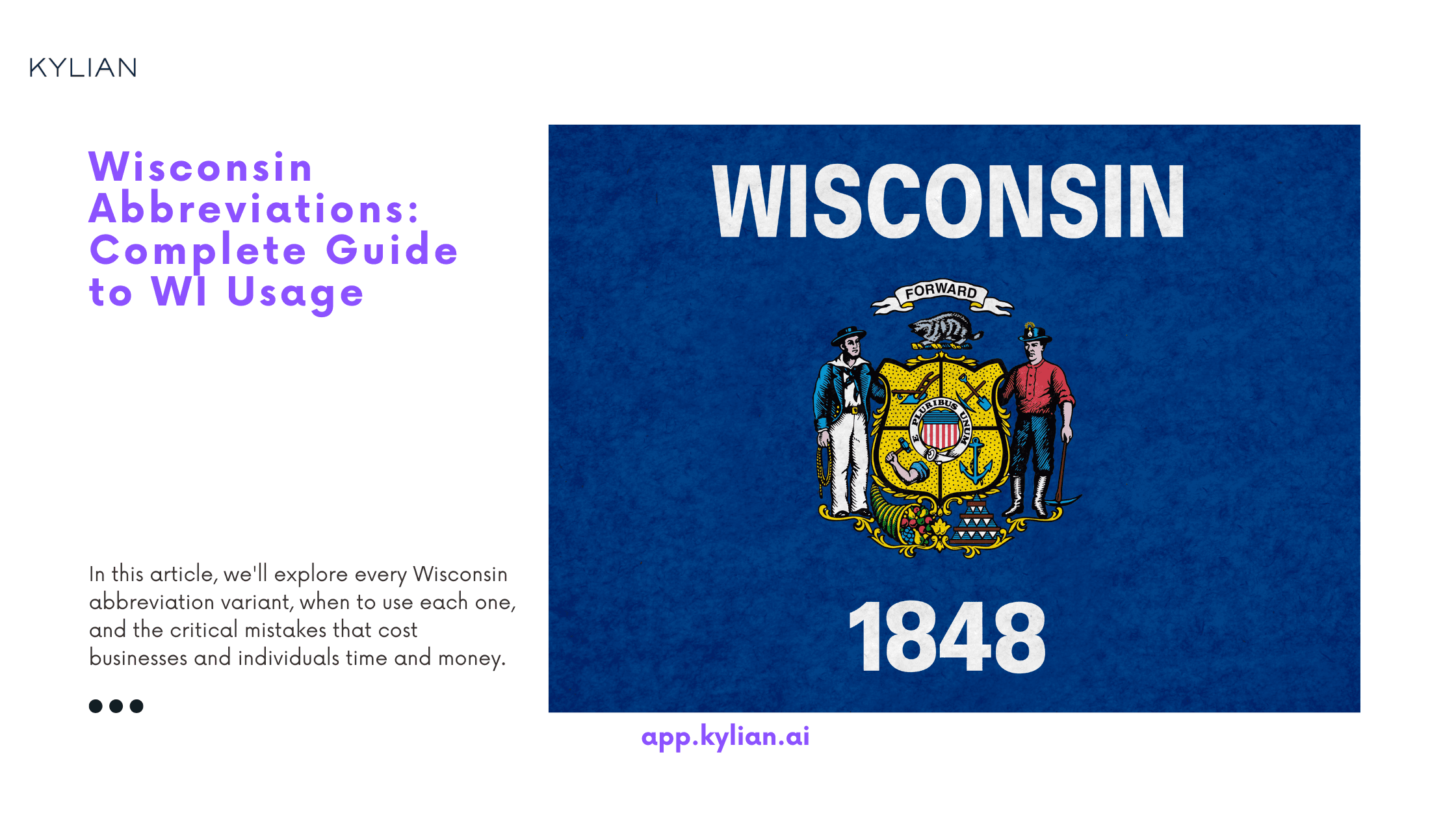

Wisconsin Abbreviations: Complete Guide to WI Usage
Understanding Wisconsin's abbreviation matters more than most people realize. Whether you're filling out official forms, addressing mail, or working with government databases, using the correct abbreviation can mean the difference between successful delivery and bureaucratic delays. Wisconsin uses "WI" as its official two-letter postal abbreviation, but the state's abbreviation history reveals why precision matters in different contexts. In this article, we'll explore every Wisconsin abbreviation variant, when to use each one, and the critical mistakes that cost businesses and individuals time and money.


When to Use Which or That: Complete Grammar Guide
Grammar precision matters. Every word choice carries weight, and nowhere is this more evident than in the distinction between "which" and "that." These two relative pronouns appear in countless sentences daily, yet their misuse remains one of the most persistent issues in professional writing. The confusion stems from a fundamental misunderstanding of clause types and their functions. Most writers operate on instinct alone, leading to inconsistent usage that undermines clarity and professionalism. This guide dissects the mechanics behind proper "which" and "that" usage, providing concrete rules that eliminate guesswork.


What is the Meaning of "So Are You"? - English
Conversational fluency hinges on mastering response patterns that native speakers use instinctively. The phrase "so are you" represents one of English's most efficient agreement structures, yet its proper usage eludes many language learners who struggle with auxiliary verb placement and contextual appropriateness. Understanding "so are you" matters because it demonstrates linguistic competence beyond basic vocabulary acquisition. When speakers use this construction correctly, they signal familiarity with English's sophisticated agreement patterns—a skill that separates intermediate learners from advanced communicators.


8 Must Know Tips for Managing Diversity in the Workplace
The cost of workplace discrimination reached $439.2 million in settlements and judgments in 2023 alone, according to the Equal Employment Opportunity Commission. This staggering figure represents more than financial loss—it reflects missed opportunities, damaged reputations, and the profound human cost of exclusion. Organizations today face an unprecedented diversity imperative. The demographic transformation of the workforce isn't a distant future concern; it's happening now. Census data projects that by 2044, no single racial or ethnic group will constitute a majority in the United States. Companies that fail to adapt aren't just missing out on talent—they're positioning themselves for obsolescence. The question isn't whether diversity matters. The question is whether your organization will lead or lag in creating an inclusive environment that drives results. This requires moving beyond surface-level diversity initiatives to implement systematic change that transforms how work gets done.
![The Most Walkable Canadian Cities for Tourists [English]](/_next/image?url=https%3A%2F%2Fcdn.sanity.io%2Fimages%2F147z5m2d%2Fproduction%2F37cbe2e4fdc14f2879f140eca2814a1cc84d243f-2240x1260.png&w=3840&q=75)

The Most Walkable Canadian Cities for Tourists [English]
Urban exploration through walking represents the most authentic method of experiencing a destination's cultural fabric. The pedestrian perspective reveals architectural details, street-level interactions, and neighborhood rhythms that remain invisible from vehicle windows or transit systems. For travelers seeking genuine cultural immersion, walkability becomes a critical factor in destination selection. Recent analysis of 21 major Canadian population centers reveals significant disparities in pedestrian accessibility between top tourist attractions. The data demonstrates that strategic city selection can reduce walking distances by over 90% while maintaining access to premier cultural and historical sites. This efficiency directly impacts travel experience quality, budget allocation, and time optimization. The economic implications extend beyond convenience. Walkable cities eliminate transportation costs, reduce accommodation proximity requirements, and enable spontaneous discoveries that enhance travel value. More critically, pedestrian-friendly destinations allow deeper cultural engagement through street-level observations and unscripted local interactions.


Will vs Would: Learn the Difference in English
Modal verbs represent one of the most challenging aspects of English grammar mastery, yet they remain fundamental to effective communication. Among these, will and would create persistent confusion for learners—a confusion that directly impacts clarity and precision in both spoken and written English. The distinction between will and would extends beyond simple grammar rules. These modal verbs carry nuanced meanings that can alter the entire tone and interpretation of your message. Misusing them doesn't just create grammatical errors; it creates communication barriers that can affect professional interactions, academic performance, and everyday conversations. Understanding when to use will versus would becomes critical when you consider that modal verbs appear in approximately 12% of all English sentences, according to corpus linguistics research. This frequency makes mastering their usage essential rather than optional for anyone seeking English proficiency.


"In and of Itself" Meaning and Usage in English
The phrase "in and of itself" appears in approximately 847,000 English texts according to Google Books Ngram Viewer, yet remains one of the most misunderstood expressions in modern English. This prevalence creates a critical knowledge gap—people encounter it constantly but struggle to grasp its precise meaning and appropriate usage. Understanding this phrase matters now because precise communication has become increasingly valuable in professional and academic contexts. When colleagues, friends, or media personalities use "in and of itself," they're making a specific logical distinction that affects the entire argument's validity. Missing this distinction can lead to misinterpretation of critical information.


"I'm Home" vs "I'm at Home": When Each Phrase Works
The distinction between "I'm home" and "I'm at home" represents more than a simple preposition choice—it reflects fundamental differences in how English speakers conceptualize location, arrival, and emotional connection to space. This grammatical nuance carries significant weight in both casual conversation and professional communication, yet many English learners and even native speakers struggle to apply these phrases correctly. Understanding when to use each expression requires examining the underlying linguistic principles that govern English spatial relationships. The choice between these phrases isn't arbitrary; it's rooted in whether you're describing a state of being or announcing an arrival, whether you're emphasizing location or emotional connection, and whether the context calls for formal or informal register.
![What Does "Enable" Mean? Complete Guide [English]](/_next/image?url=https%3A%2F%2Fcdn.sanity.io%2Fimages%2F147z5m2d%2Fproduction%2F9b464e9fe847a4d81e51eff0696ec5c37a58b3c7-2240x1260.png&w=3840&q=75)

What Does "Enable" Mean? Complete Guide [English]
The word "enable" carries significant weight across multiple contexts, from technology settings to psychological relationships. Understanding its precise meaning becomes critical when you realize that enabling affects everything from digital security configurations to interpersonal dynamics that can either empower or inadvertently perpetuate harmful behaviors. Bottom Line Up Front: Enable fundamentally means to provide the means, authority, or opportunity for something to happen or function. However, its application varies dramatically between positive empowerment (technology, business) and potentially harmful facilitation (psychology, relationships).
![Work Out vs Workout: The Definitive Grammar Guide [English]](/_next/image?url=https%3A%2F%2Fcdn.sanity.io%2Fimages%2F147z5m2d%2Fproduction%2F80a7a8428fc52bee680b928a04dc36086a34decc-2240x1260.png&w=3840&q=75)

Work Out vs Workout: The Definitive Grammar Guide [English]
The distinction between "work out" and "workout" represents more than a simple spelling preference—it reflects fundamental grammatical principles that native speakers intuitively understand but rarely articulate. This confusion costs professionals credibility in written communication and creates unnecessary friction in digital content consumption. Data from Google Trends shows consistent monthly searches exceeding 50,000 queries for "work out vs workout," indicating persistent confusion among English users worldwide. The stakes matter because incorrect usage signals linguistic carelessness in professional contexts where precision drives trust.
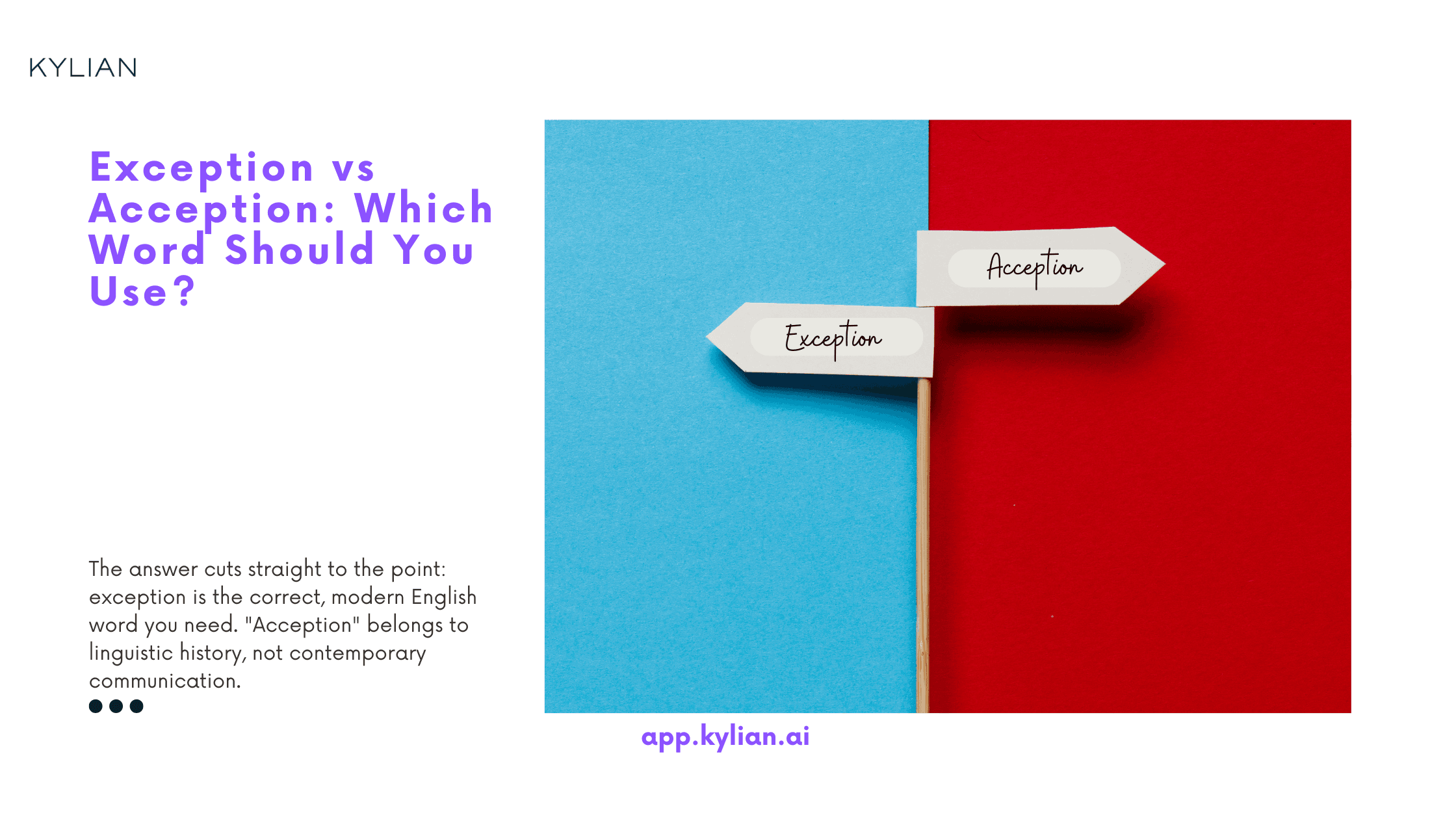

Exception vs Acception: Which Word Should You Use?
Language precision matters when credibility is on the line. The confusion between "acception" and "exception" represents more than a simple spelling error—it reveals fundamental gaps in understanding modern English usage. Why does this distinction matter now? Because in professional communication, academic writing, and digital content, word choice signals competence. The answer cuts straight to the point: exception is the correct, modern English word you need. "Acception" belongs to linguistic history, not contemporary communication.
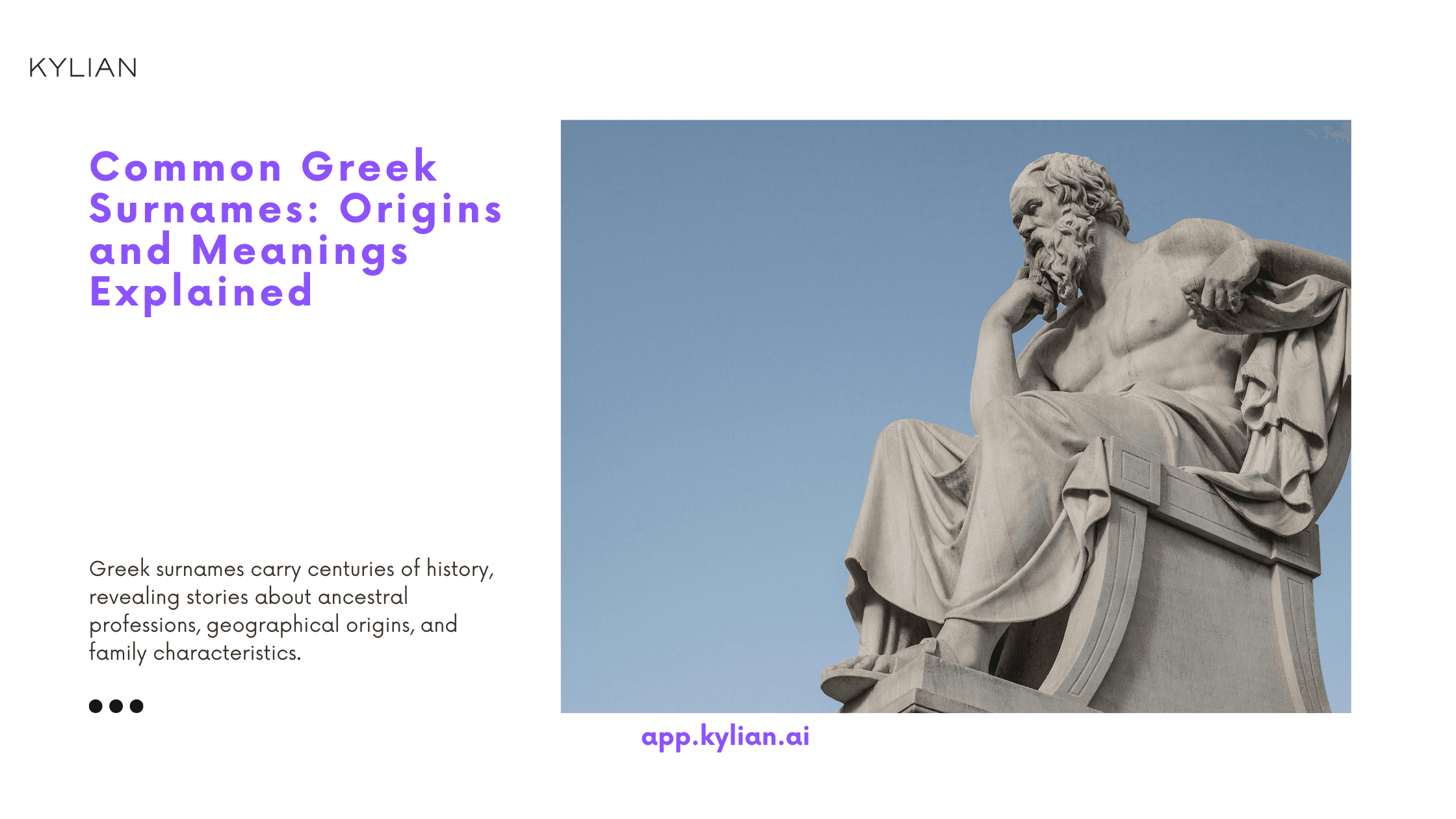

Common Greek Surnames: Origins and Meanings Explained
Greek surnames carry centuries of history, revealing stories about ancestral professions, geographical origins, and family characteristics. Understanding these naming patterns provides insight into Greek culture and helps explain why certain surnames appear frequently across Greek communities worldwide.


What's Going On? Meaning and Context in English
The phrase "what's going on?" represents one of English's most versatile expressions, functioning simultaneously as a casual greeting, a request for information, and an expression of concern or confusion. Understanding its nuanced applications proves critical for effective communication across personal, professional, and social contexts. This comprehensive analysis examines the multifaceted nature of "what's going on?" - exploring its various meanings, appropriate usage scenarios, and the contextual factors that determine its effectiveness in different communication settings.